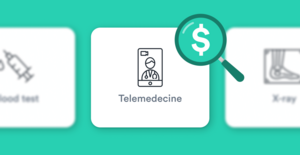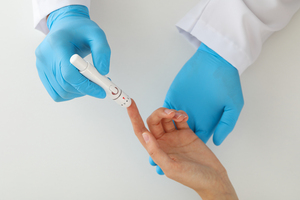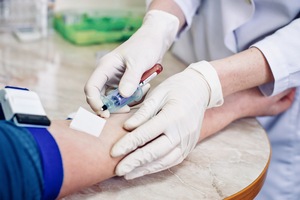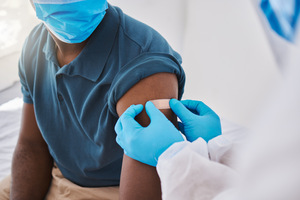RSV Test near me
in Crane, MO
Own a clinic? Add your location.
Help patients book appointments with you on Solv. It's free!
4 instant-book locations

Available times on Friday

Quest Diagnostics
Quest Diagnostics

Quest Diagnostics
Quest Diagnostics

Custom Laboratory
Custom Laboratory
Consulting Analytical Services International
Consulting Analytical Services International
Rozell Testing Laboratories
Rozell Testing Laboratories
Ozark Valley Medical Clinic
Ozark Valley Medical Clinic
Insurance Physicals and Employee Screening
Insurance Physicals and Employee Screening
Greenwood Laboratory School
Greenwood Laboratory School
DaVita Springfield North
DaVita Springfield North
Chestnut Lab
Chestnut Lab
KT Health Clinic
KT Health Clinic
Missouri OnSite Testing
Missouri OnSite Testing
Chestnut Labs
Chestnut Labs
Own a clinic? Add your location.
Help patients book appointments with you on Solv. It's free!
Crane RSV Tests
RSV (Respiratory Syncytial Virus) is a virus that affects the lungs, nose, and throat. RSV usually causes mild symptoms in older children and adults, and there is no need for a test. RSV is a seasonal illness that usually strikes in the late fall and early winter. One of the most common causes of respiratory illnesses is this virus. The majority of children will have contracted RSV by the age of two, but not all of them will develop severe symptoms.
If your child develops severe illness symptoms such as fever, wheezing, intense coughing, or difficulty breathing, your doctor may recommend an RSV test. In babies, RSV can lead to more serious infections such as bronchitis, pneumonia, or coup.
Some persons are more likely to acquire a severe RSV infection, such as:
- Premature babies
- Children with a congenital heart disease
- Children with a chronic lung disease
- Individuals with a weakened immune system
- The elderly
RSV is highly contagious, and it can be spread by coughing or sneezing. The good news is that once you've had RSV, you're less likely to get it again. If they occur, the symptoms will most likely be modest.
RSV has no specific treatment, and most infections will go away on their own in 1-2 weeks. On the other hand, some over-the-counter medications can help alleviate symptoms. Your doctor may prescribe acetaminophen to help with fever relief. If your kid or infant has been diagnosed with RSV, please sure to follow your doctor's instructions and only take drugs designed for children. A youngster should never be given aspirin. Antibiotics are rarely used to treat viral infections, but they may be given if the infection is severe.
When RSV tests are given as soon as the virus appears, they are most effective. If your doctor suggests an RSV test, there is no need to prepare. You should tell your doctor about any prescriptions you're taking, including over-the-counter medications, vitamins, and supplements.
RSV Test FAQs
What is an RSV test?
RSV (respiratory syncytial virus) is a respiratory infection that can be detected with an RSV test. Your healthcare provider may use a swab to collect a sample from your nose or throat, or they may inject a saline solution into your nose and gently suction it out during an RSV test.
Who should get an RSV test in Crane?
RSV is a virus that can cause serious respiratory problems in infants, the elderly, and adults with a weakened immune system. RSV symptoms include sneezing, headaches, and a runny nose, which are similar to those of a regular cold. Adults usually don't need an RSV test unless they're having severe symptoms like coughing, breathing difficulties, or blue skin.
How much does an RSV test cost?
The cost of an RSV test is governed by several factors, including the test's location and whether or not you have health insurance. If you don't have insurance, an RSV test might cost anywhere from $10 to $43.
Does insurance cover RSV testing in Crane?
Your health insurance company may pay you for the cost of an RSV test. However, a number of factors, such as whether you have a co-pay or have met your deductible, may influence the amount you must pay. If you have any doubts about what is covered under your individual health plan, you can call your insurance carrier or read over your plan documentation.
Where should I get an RSV test in Crane?
RSV testing is accessible at a number of urgent care clinics and physician's offices. If your doctor orders an RSV test for you or your kid, it will almost definitely be performed by a nurse at the doctor's office.
How is RSV tested for in infants and babies?
RSV tests on young children and babies are frequently performed with a nasal swab. Your healthcare expert will put a little swab into the child's nostril until it reaches the back of their nose. They'll gently move the swab around to get a sample of nasal secretions. While there may be some discomfort at first, the test is completely safe and only takes a few minutes.
How long does it take to get RSV test results in Crane?
A nasal swab test performed on-site at your doctor's office usually yields results in a matter of minutes. Blood testing is sometimes used to identify RSV, in which case the sample will most likely be sent to a lab for analysis. The results could take several days to arrive.
How accurate are RSV tests?
RSV tests that employ a sample of nasal secretion are accurate 80 to 90% of the time. Blood testing for RSV antibodies are usually incorrect, particularly in infants and young children. This is because antibodies from a mother's blood might remain in a baby's blood after birth. It's possible that if an infant tests positive for RSV, the mother infected them with RSV antibodies before they were born.
How can I book an RSV test through Solv?
Solv makes it simple to schedule RSV testing. Simply type "RSV" into our website's search bar. The RSV test will be offered as a choice. After inputting your location or selecting the option to use your current location, click the search icon. On the next page, you'll see a list of providers in your area with available appointment times. Simply choose a time and location that is convenient for you, then enter your information to schedule an appointment.
Can I do at-home RSV testing?
RSV home testing is currently unavailable. Some companies are developing home tests for respiratory infections such as RSV, COVID-19, and the flu, however the FDA has yet to approve these tests. RSV testing should be done at your doctor's office.

Updated on Jun 25, 2025
Solv has strict sourcing guidelines and relies on peer-reviewed studies, academic research institutions, and medical associations. We avoid using tertiary references.
Related Searches
Ear Wax Removal in Crane
Sports Physicals in Crane
A1C Test in Crane
Allergy Testing in Crane
Basic Metabolic Panel in Crane
CMP Test in Crane
Diabetes Test in Crane
Diagnostic Test in Crane
Flu Test in Crane
H Pylori Test in Crane
Hepatitis test in Crane
Lab Tests in Crane
Mono Test in Crane
Pregnancy Test in Crane
RSV Test in Crane
STD Testing in Crane
Strep Test in Crane
TB Test in Crane
Thyroid Test in Crane
Vitamin D Test in Crane
Aetna Urgent Care
Blue Cross Blue Shield Urgent Care
Cigna Urgent Care
COVID-19
Flu
United Health Urgent Care
» All services in CraneFind RSV test
Nearby cities
Everyday Healthcare, Simplified
Expert advice to help you live your best life







